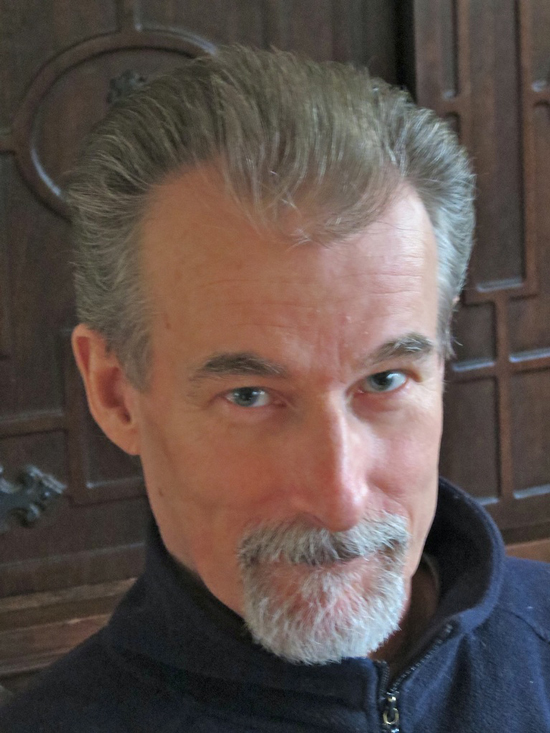
By Richard Jacques Bernier
The presentation of the Kennedy Smith Lecture by Professor Douglas Farrow at McGill on Jan. 22 celebrated two events: the sixtieth anniversary of the purchase, by a group of lay Catholics, of the building at 3484 Peel Street that houses the Newman Centre, and the inauguration of Farrow’s tenure as McGill’s Kennedy Smith Chair in Catholic Studies, a position endowed by Lee and Mary Podles in 2000. The chair is named for Mary Podles’ father.
Farrow, a Canadian Roman Catholic theologian from British Columbia, serves as Professor of Christian Thought in the Faculty of Religious Studies and is the third holder of the chair. According to the Newman Institute of Catholic Studies’ website, the chair exists to “support and promote the Catholic Studies program at McGill through teaching, research, and service to the university and community.” Farrow spoke on the topic “Catholics and the ‘Neutral’ State,” taking up a theme of particular current interest in Quebec.
Noting that the word “secular” comes from saeculum (Latin for “age” or “era”), Farrow observed with British political philosopher Oliver O’Donovan that “the antonym to ‘secular’ is not ‘religious’ but ‘eternal.’” He argued that a secular society is one that cannot claim permanence or perfection, and that, from the historic Christian point of view, a secular state ought to recognize that its task is a modest one: to exercise a limited and provisional form of justice, directed to human welfare and the common good, while recognizing that the last word on that welfare or good belongs, not to the state or to society as such, but to Christ.
Farrow acknowledged the obvious objection to this reading of secularity that arises from the diversity of views that co-exist in a society like Quebec, and from civil authorities’ obligation to be “capable of respecting a plurality of perspectives and of faith communities.” He argued that a proper resolution of this tension demands that two principles be kept in mind: first, that “the state cannot be neutral” and, second, that “the state is not, and ought not to be, an extension or instrument of the church.”
On the one hand, he explained, to confuse church and state is to confuse the present age with what the Christian faith understands to be the age to come; the principle of separation of church and state is thus thoroughly Christian in origin. On the other hand, the “neutral” state is an illusion, just as the neutral individual or the neutral society is an illusion. Men and women must take decisions about good and evil in every facet of their lives; some of these decisions have to be taken not just by individuals but collectively, and this cannot be done, Farrow contended, by studiously avoiding religious questions and commitments.
Farrow noted that the two mottoes appearing on the Canadian coat of arms are taken from the Bible and express this paradoxical Christian recognition both of God’s present sovereignty over human affairs, and of hope: desiderantes meliorem patriam, Latin for “they desire a better country,” is an expression of eschatological hope from Hebrews 11, while a mari usque ad mare was taken from Psalm 72 which states “he shall have dominion from sea to sea.”
The McGill Newman Centre, which hosted the lecture, is named for the distinguished English theologian John Henry Cardinal Newman (1801-1890). Newman treasured the role of the Catholic laity in the church and in the world, and saw the university as the pre-eminent place for lay Catholics to be formed for their secular mission of justice, compassion, and the pursuit of truth. McGill’s Catholic community has met as the “Newman Club” since 1929, but in 1954 Montreal priest and McGill chaplain Gerald Emmett Carter (later Archbishop of Toronto, and a cardinal in his own right), with support from generous lay Catholics, provided the student group with its present home.
The political engagement evoked by Farrow is a theme dear to Newman himself and to the ethos of the Centre that bears his name. John Turner, former Canadian Prime Minister, and Warren Allmand, Justice Minister under Pierre Trudeau and longtime Montreal city councilor, are among the political leaders who frequented the Centre in their student days, and Newmanites continue to cherish the generous involvement of former Quebec Liberal Party leader Claude Ryan, who taught McGill’s course in Catholic Social Thought and regularly joined the Newman students for Mass until his death in 2004.
A podcast of the event is available at www.catholicstudies.ca
